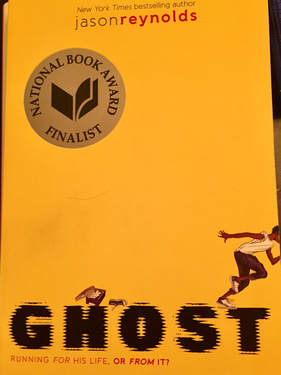

At least that’s how I always looked at it. Track? In track you run and then you stop. Basketball has speed and football has brute force, all good things when writing a story. That’s because baseball is a game with a natural rise and fall to its action. I doubt anyone has ever run any statistics on it, but if you were to gather together all the children’s sports books and group them by type, the baseball books would undoubtedly outweigh all the others 2:1.

It follows him and if he’s not careful it’s going to follow him right onto the track.īaseball. And then there’s the fact that no matter how fast he is, Ghost can’t run away from trouble.

The running is much harder than anything Ghost has ever experienced before. The other kids there all have their own lives, few of them easy. Coach begs Ghost to join and Ghost reluctantly agrees but it isn’t what he expected. Without thinking about it twice Ghost beats the guy on the track, running on the outside, which gets the attention of the coach. Then one day he spots a track warm-up and takes an instant dislike to the albino kid in the expensive tracksuit. He’s got a load of anger inside that he doesn’t know how to deal with so he tends to take it out on others at school. Ghost learned to run that night and you might say he’s been running ever since. You can call him Castle Crenshaw if you want to (that’s technically his name) but he’s been calling himself Ghost ever since the night his dad got drunk and threatened Castle and his mom with a gun. And now we’ve got to find a way to get a lot of it into the hands of kids. It’ll make you like sports books, even if you can’t generally stand them. It makes you care about a kid who keeps messing up over and over and over again. Now Jason Reynolds, a young adult author until this year, has produced a middle grade novel centered on that must unlikely of sports: track.

If our Newbery winning The Crossover by Kwame Alexander taught us anything, it was that. Mike Lupica and Tim Green may rule the field but that doesn’t mean other people don’t make a lot out of athletics. Horse books, for example, just sat on our shelves untouched. When I served on a yearly committee of librarians in New York I’d notice that some books were difficult to get anyone to read. They’ll travel outside of them from time to time but always they return to the books that they like the most. This is a generalization, but in my experience librarians really enjoy reading within their comfort zones.


 0 kommentar(er)
0 kommentar(er)
